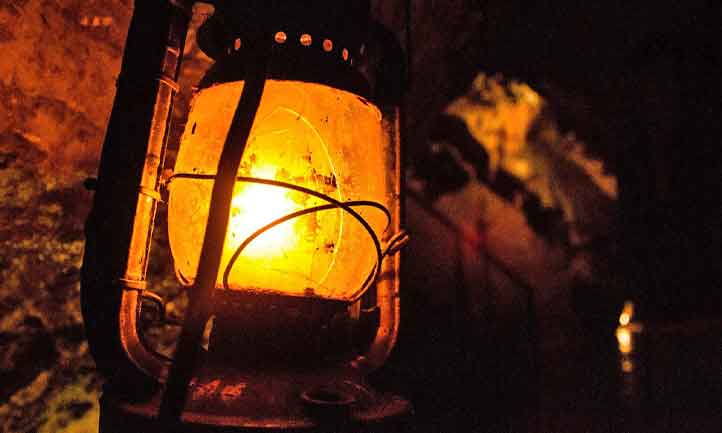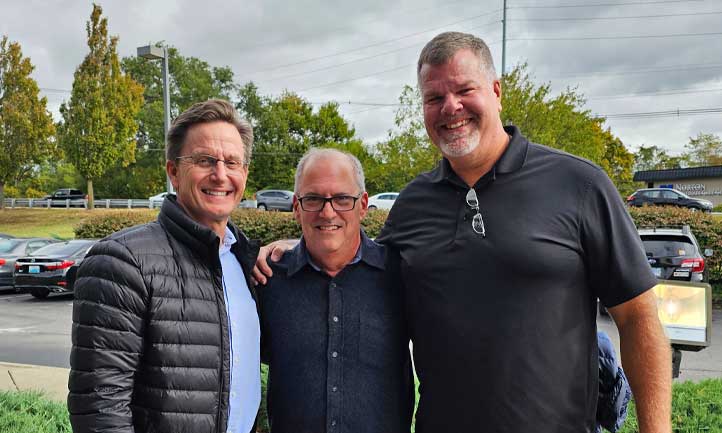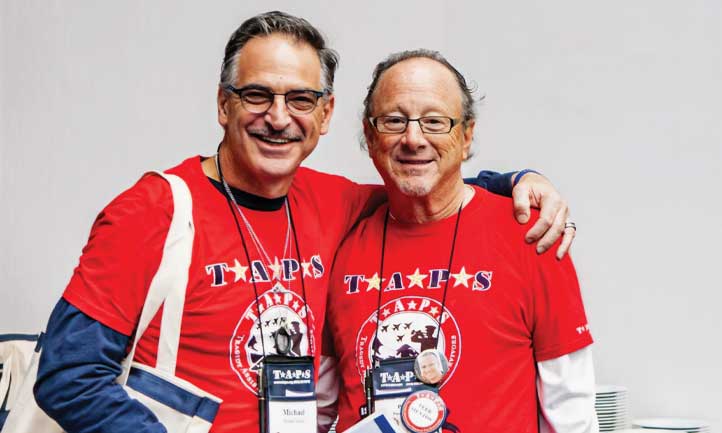Hindsight Is 20/20
Author: Gregory Jacobs
In a recent conversation with a surviving father, I expressed how clear our vision is in hindsight — it’s 20/20. However, our vision looking forward at the start of our grief journey can seem blurry and near-sighted at times.
My son, David, died in an auto accident on December 23, 2020, while serving in the U.S. Army at Fort Carson, Colorado. Immediately after his death, I lived in regret. Did he know I loved him deeply? Was I too strict on him growing up? Did I support his life decisions? Was there anything that could have been done to prevent the accident? I felt stuck in a cave of despair with no hope or vision for the future or what it might hold.
The Cave
While visiting Mammoth Cave National Park in Kentucky, my wife and I signed up for a lantern tour with a maximum of 13 tickets sold for each tour and only six lanterns to be handed out. We lined up, every other person holding a lantern. The small gas lamp gave me just enough light to see five feet in front of me. I had to trust the guide and others ahead of me holding their own lanterns.
As we walked, my mind drew parallels between this tour and times I wished I could know what the future held — winning lottery numbers, a hot stock pick, or the foresight to buy a piece of real estate before it appreciated. But we can’t know the future; we can only make decisions based on the information we have in the present moment — the illuminated part of our path.

Lighting Our Path
In hindsight, I spent the first year of my grief journey focused on surviving — taking one step at a time, not knowing what why and what-if questions lay just outside the metaphorical lamplight. In grief, we might feel out of control at times, and that is OK. We might not be able to see much of the path in front of us, and — unable to see the hope ahead of us — there will be moments when we lack hope and become consumed with the whys and what-ifs behind us.
Just as I trusted the lamp holders in front of me in that dark cave, we must trust others who have gone before us in grief who are holding a light up for us to see. Looking back, I have found solace in the wisdom of others who have walked this path ahead of me. Through my interactions as a TAPS Peer Mentor or a Care Group facilitator, I’ve learned we can’t make this journey without the light of others.
 Gregory T. Jacobs (right) with fellow survivors
Gregory T. Jacobs (right) with fellow survivors
When I look back on the year 2020, I am reminded of my post-traumatic growth. I decided early on that grief was not going to keep me in that dark cave. I would grow in wisdom from the loss of my son. My challenge to you is to continue daily to bring your loved one’s memories along with you everywhere you go — I take David with me. Never stop talking about your loved one — this is an expression of our love for them. Surround yourself with a network of support — people who care about you and can help light your way.
Finally — when you’re ready — take the opportunity to carry the lamp for someone else journeying the path of grief. When they feel lost in early grief; your experience and hindsight can light their way.

Becomae a TAPS Peer Mentor
At TAPS, survivors help survivors heal. We are grateful for all of our Peer Mentors who help light the path of grief for other military and veteran survivors. Whether you are a current TAPS Peer Mentor wanting to deepen your knowledge and involvement in the program or you’re at least 18 months beyond the loss of your loved one and you’re ready to pursue Peer Mentor training for the first time, our knowledgeable and compassionate team will provide training and ongoing support as you let your experience light the path for fellow survivors. Learn more about becoming a TAPS Peer Mentor.
Gregory T. Jacobs is the surviving father of SPC David M. Jacobs, U.S. Army, and a TAPS Peer Mentor.
Photos: Pixabay.com and TAPS Archives
